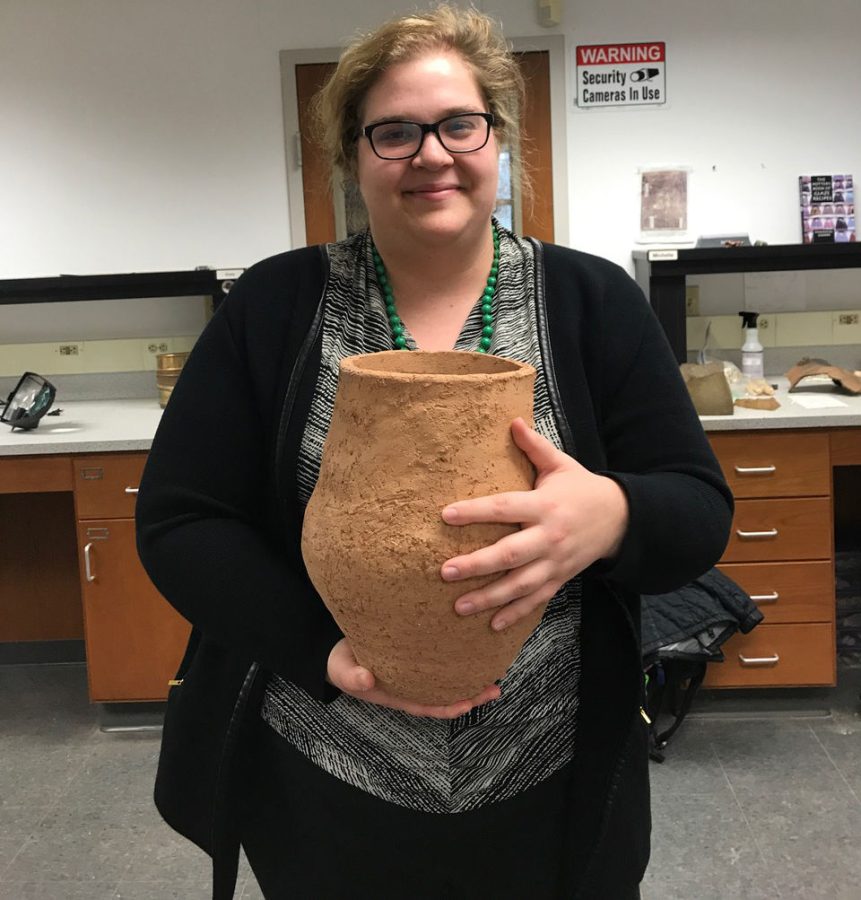Graduate student conducts clay pot experiment that may help future archaeology digs
The time and effort put into a thesis can cause a sense of dread for some graduate students, but when Ashley Rutkoski began her master’s degree, all she thought about was clay pots.
Rutkoski came to Kent State in the fall of 2017 to get her master’s in anthropology, and after talking to Metin Eren, an assistant professor of anthropology and the director of archaeology in the College of Arts and Sciences, she figured out what she wanted to do for her thesis.
“I was thinking of doing more of an art thing before I decided to go more into … scientific research,” Rutkoski said. “I’ve always been drawn to both, so this was kind of a cool way that I could incorporate my ceramic background while also doing scientific research.”
For Rutkoski’s experiment, she created 30 clay pots based on a historical design. She filled 15 of them with corn and left the other 15 empty. She then broke the pots so she could study the broken pieces, or sherds, to see if there was any difference between how the they broke.
Rutkoski centered her experiment on pot sherds so she could learn more about them.
“You rarely find whole pots … in the ground,” she said. “People destroy them, they are destroyed by animals, all sorts of things. So from that, what I was trying to figure out was how can I look at these sherds in a new way that would give us new information.”
After spending months analyzing the sherds, Rutkoski found no difference between them. Eren believes it will offer new information in the field of archaeology that can help at future dig sites.
“The reason why it’s [the experiment] important is after stone tools, pot sherds … are the most abundant thing that we find at archaeological sites, and so it would be really useful to squeeze as much information out of this very abundant archaeological resource,” Eren said.
Since completing the experiment, Rutkoski has been writing her thesis statement and will be presenting and defending her research to a committee of biological anthropologists and biologists April 5, which will be the last step in her master’s degree.
Rutkoski will graduate this May, and she plans to continue to research while she gets her doctorate degree. Eren said Rutkoski has a bright future ahead of her.
“Ash is unique,” Eren said. “She’s kind, she’s caring, she’s conscientious. These are all things you not only want in a student, but in a colleague. As Ash moves on to her Ph.D. … that’s what she’ll become.
“She’s a vital part of my lab here at Kent State, and she is definitely going to be missed, but she’ll always be an honorary lab member.”
Rachel Karas covers graduate education and research. Contact her at [email protected].



